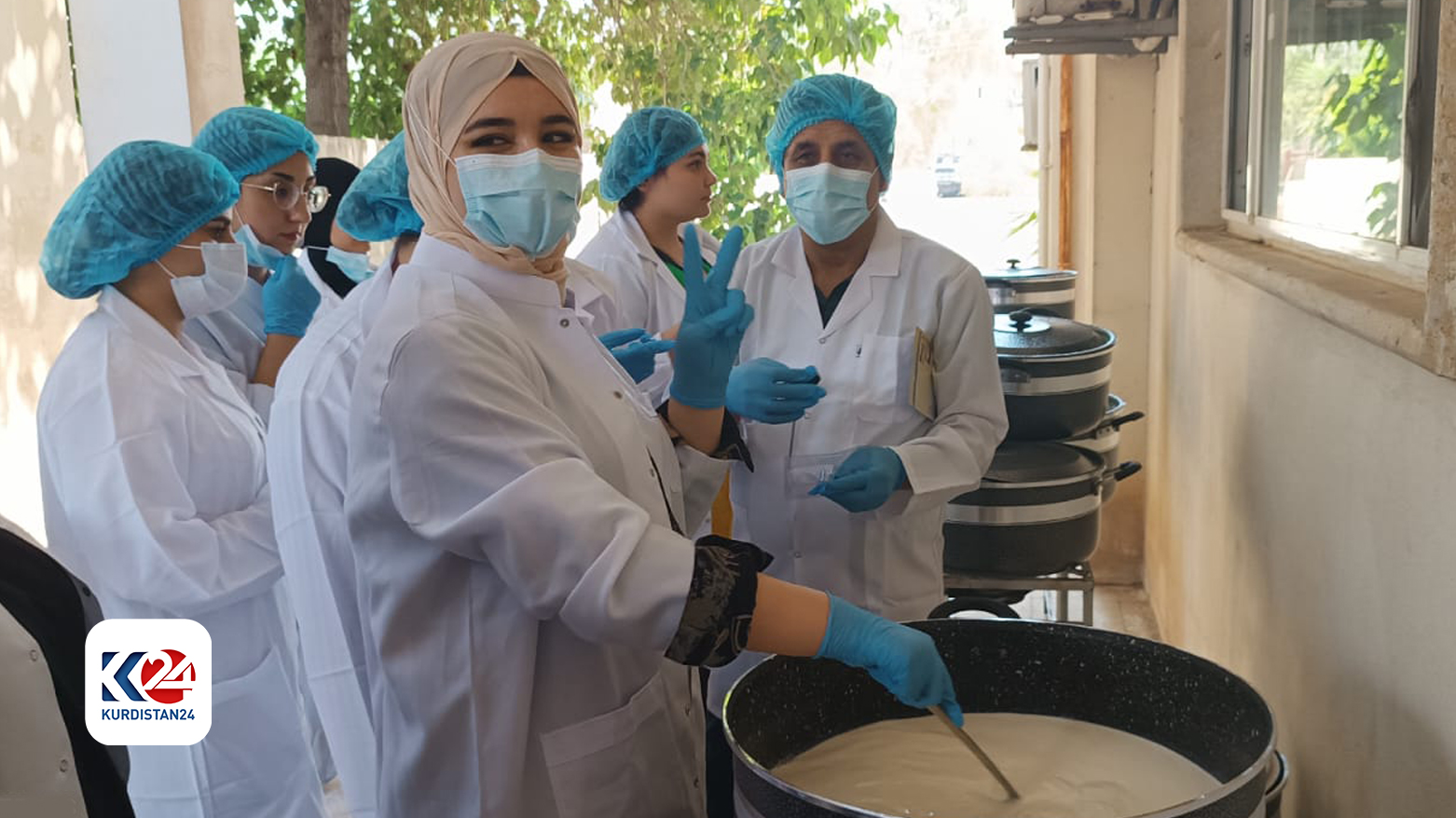KRG launches dairy production courses to empower women, boost local agriculture
In collaboration with the United Nations Development Program (UNDP), the Ministry has launched these courses to enhance the skills of university and college graduates, enabling them to become self-reliant and economically independent.

ERBIL (Kurdistan 24) – The Kurdistan Region’s Ministry of Agriculture and Water Resources (MoAWR) has announced the initiation of dairy production courses aimed at empowering women in various cities across the region.
In collaboration with the United Nations Development Program (UNDP), the Ministry has launched these courses to enhance the skills of university and college graduates, enabling them to become self-reliant and economically independent.
Abdulbasit Amin, the project supervisor, provided details to Kurdistan 24, stating, “The course began on Monday, July 22, in Duhok and will conclude today, Thursday, July 25. The next session will start in Halabja on Wednesday, July 31, followed by Sulaimani on Sunday, August 4.”
The courses will also be held in Halabja, the Independent Administrations of Raparin and Soran, Akre, and Erbil. However, specific dates for these locations have yet to be determined.
“Strengthening domestic dairy production is crucial for increasing the resilience of the agricultural sector against economic and humanitarian crises,” Amin emphasized. “We are currently experiencing inflation in food prices, largely due to global increases in food costs.”
He underscored the importance of expanding production to ensure food security and provide income for farmers' families. "The livestock sector requires significant improvements to enhance dairy production and development."
Amin highlighted the necessity of employing best practices and technologies in processing milk, yogurt, and cheese. This initiative aims not only to support local farmers but also to reduce dependence on foreign products, create jobs in both rural and urban areas, and foster economic growth.